www.passions.com

EXTINCTION
What a glorious way to spend a honeymoon: Mark and Olivia Gunnerson go backpacking through the vast Erebus Resort in the mountains of Colorado, where scientists have “de-extincted” species like the woolly mammoth and other Pleistocene megafauna. Just watch the peaceful beasts at their watering holes. Behold the giant armadillos, and the indricothere that make mammoths look like dwarfs. The scientists have removed genes for aggression in these re-creations, so humans will be safe unless they’re
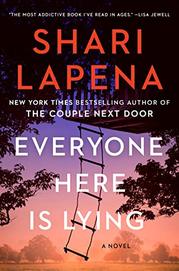
EVERYONE HERE IS LYING
After being dumped by his lover, William Wooler comes home to find Avery, his precocious, difficult 9-year-old daughter, alone in the kitchen when she’s supposed to be at choir practice. A confrontation ensues, and William leaves. Several hours later, it appears that Avery is missing. The police are immediately on the case, interviewing the family and the neighbors for information, but instead of providing clarity, each conversation seems to complicate the investigation. Why does it take Willia

THE FREEZIES
Kai, Leo, and Suleikha (who goes by “Sully”) live in an English village. Some locals, who wish to keep away “squatters and travellers,” quickly become outraged when an unfamiliar van towing a trailer shows up on the common. The driver, Mr. Christaki, plays the violin beautifully. When a small mob of residents recruits the police to evict him, Leo’s parents, a lawyer and a barrister, instead invite Mr. Christaki to relocate to their property and hire him to teach Leo violin. Following the winter
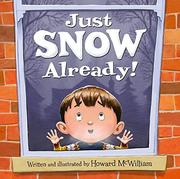
JUST SNOW ALREADY!
Everything reminds the young narrator of snow, even the milk and sugar at breakfast. Though the child’s sister doesn’t really care, the protagonist’s imagination runs wild with plans of sledding, snowball fights, and snowman building, but “absolutely NOTHING” is happening outside. The child doesn’t see what the readers do. It may not be snowing, but the neighborhood is bursting with activity: A parade of bicycles (including a unicycle and an old-fashioned penny-farthing) zips by, a firetruck ar

MISTRESS OF LIFE AND DEATH
Eischeid, a performer and teacher who specializes in the music of the Holocaust, has researched the life of Maria Mandl (1912-1948) for more than 20 years. Some of Mandl’s surviving contemporaries have been willing to talk, and Mandl herself added to the massive documentation on the Nazi years. She was born to a close-knit, middle-class Austrian family who passed smoothly through the 1920s but suffered during the Depression the following decade—although her father, a shoemaker, kept working. Wh

BIG RIVER
Photographer and biologist Moskowitz and nature writer Pearkes survey, in words and images, the enormous Columbia River Basin, stretching from British Columbia to Nevada and from Montana to the Pacific Ocean, its many rivers now punctuated by dozens of dams. The book opens with an expansive essay by Pearkes on the Basin’s natural and human history, including the ancient geology and glaciology that forged its rugged landscape, the evolution of salmon and their epic upriver migrations from the se

A LITTLE BIT OF EVERYTHING
After Amaya is born, her parents repeat an affirmation to her every day: “You have a little bit of Mama in you, / and a little bit of Papa. / You have a little bit of where you go, / and a bit of who you meet. / You have a little bit of the things you do, / and a bit of who you want to be.” Sure enough, Amaya experiences many things for the first time, some concrete, such as encountering the ocean and going camping, and some intangible, such as using her imagination. And when Amaya meets her ne
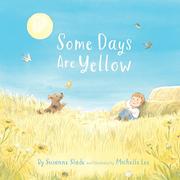
SOME DAYS ARE YELLOW
Life’s an awesome adventure, filled with highs and lows—sometimes all in the same day. This delightful book explores the idea of life’s shifting sands. Through simple, bouncy verses and charming, colorful illustrations depicting a variety of scenarios, readers learn that some days will be filled with triumphs, friendship, and excitement, while others might deliver disappointment, hurt, sadness, fear, loneliness, and self-doubt. In other words, life isn’t static. The author and the illustrator p

FLAGS ON THE BAYOU
Seriously in debt to business associate Minos Suarez, Charles Lufkin rents him Hannah Laveau, an enslaved woman he’s recently purchased. Things don’t go well for either Hannah, whom Suarez unmercifully assaults, or Suarez, who’s found castrated with his throat cut shortly after Hannah parts company with him. Just as Hannah is haunted by Samuel, the son from whom she was separated during the bloody Union attack on Shiloh Church, Lufkin’s nephew, Wade, who volunteered as a medical officer on the

HOUSE OF BONE AND RAIN
After his mother, a low-level drug dealer named Maria, is shot in the face for encroaching on someone’s territory, her son, Bimbo, will stop at nothing to avenge her—including torturing and murdering people for information. Most of his close friends don’t want any part this. But after one of them, Xavier, is murdered and Gabe, the primary narrator of the book, barely escapes the killers, their outlook changes. Torn between loyalty to Bimbo and love of his girlfriend, Natalia, who tries to talk

INCIDENTS AROUND THE HOUSE
Set in the fictional small town of Chaps, Michigan, near the other made-up places in dread specialist Malerman’s novels, the story involves a deeply troubled family. Bela’s actual mommy has been cheating on her father, Daddo, whose friendliness and good cheer clash with his wife’s dark streak. Wrapped up in their squabbling and work demands, they’ve neglected to pay attention to Bela. Sweetly seductive in the beginning, Other Mommy offers Bela, who blames herself for the whole mess, a solution.

SAINT-SEDUCING GOLD
Joan’s godfather, Baba Ben, is still locked away in the Tower of London, so it’s Joan’s job as one blessed by the Orisha Ogun to protect their people with her power to manipulate metals. Fae creatures that feast on the bones and blood of humans are growing bolder and stronger now that the Pact forged to keep them in their own realm has been broken. Since iron is the only defense against Fae folks, Joan’s gift is critical in the fight against them. But Titanea, queen of the Fae, has risen from t

YOU GET WHAT YOU PAY FOR
Parker, the author of Magical Negro, winner of the National Book Critics Circle Award for Poetry, is good at snappy titles, clever formulations, and bitter humor, all of which are on display in these provocative and personal reflections, structured as a kind of symphony of themes and metaphors. One of the central images is the slave ship, which features in essays with titles like “Everything Is a Slave Ship: Rupture” and “Strategies for Boat Repair: A Guide to Reparations.” Positing that “a Bla
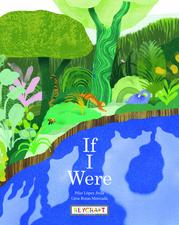
IF I WERE
An unnamed narrator, seen only in shadowy outline on the final spread, imagines what they would like to be and do in the wild world. If they were a tree, their branches “would dance to the sound of the wind.” If they were the wind, their breeze “would carry seeds to the deserts.” The pattern goes on, through sandcastles/sand and the ocean to whales, salt, deer, birds, hummingbirds, flowers, mist, cloud, and back to tree to complete the circle. The actions described are a mix of realistic and fa

THE LETTERS WE KEEP
The story opens with “Dear Jaan,” the first line of a letter from 1972 that’s a beckoning to romance—a romance that rumor says ended in flames in Hartceller University’s Davidson Tower. Cut to the present day: Jessie Ahuja is at Hartceller, studying hard to become an engineer. She refuses to be distracted by the extremely rich and attractive Ravi Kumar, who insists on walking her home and battling over study room reservations. Jessie’s worked hard to get good grades and stay steadfastly committ
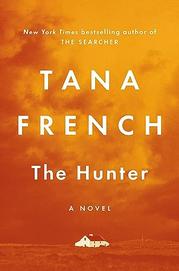
THE HUNTER
In fictional Ardnakelty, on Ireland’s west coast, lives retired American cop Cal Hooper, who busies himself repairing furniture with 15-year-old Theresa “Trey” Reddy and fervently wishes to be boring. Then into town pops Trey’s long-gone, good-for-nothing dad, Johnny, all smiles and charm. Much to her distaste, he says he wants to reclaim his fatherly role. In fact, he’s on the run from a criminal for a debt he can’t repay, and he has a cockamamie scheme to persuade local townsfolk that there m

WOODROW WILSON
Historian, lawyer, and former Congressman Cox writes that Wilson was the first Southern Democrat to occupy the White House since Andrew Johnson. Scholars have long considered him a giant among presidents for his progressive reforms and leadership in World War I. They have not ignored his flaws, emphasizing the censorship, suppression of civil rights, and persecution of war opponents. Cox will have none of that. Sticking to the historical record but keeping Wilson’s achievements in the backgroun
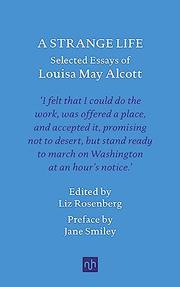
A STRANGE LIFE
Even occasional readers know that Louisa May Alcott (1832-1888) wrote Little Women. Few may be aware that she was also a remarkably witty essayist. This volume collects some of Alcott’s nonfiction, which editor Rosenberg calls “even more brilliant—or perhaps more consistently brilliant—than her novels and stories.” The book includes three long essays and excerpts from six additional pieces. The snippets, including “Happy Women,” where she begins, “One of the trials of womankind is the fear of b

BLUE RUIN
Kunzru’s seventh novel is narrated by Jay, who in the early days of the Covid-19 pandemic is in ill health, getting by delivering groceries in upstate New York. His route takes him to an estate that’s coincidentally occupied by Alice, a former flame, and her husband, Rob, Jay’s one-time art school rival. Alice is disinclined to bring him into their pod for fear of infection—or of stoking old drama—so instead hides him in a barn while his health improves. In the weeks that follow, Jay recalls th
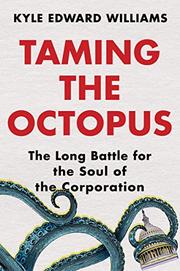
TAMING THE OCTOPUS
In this astute history, Hedgehog Review senior editor Williams charts the evolution of the corporation into its outsized and seemingly predatory role in American life, along with prominent efforts undertaken to reform it. Drawing on “the stories of businesspeople, employees, consumers, and activists who have waged battles over business decisions, managerial strategies, and public policy,” the author traces key stages of the corporation’s rising autonomy and activists’ resistance to its undemocr




















